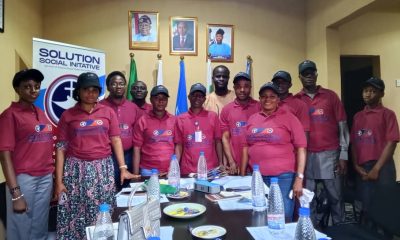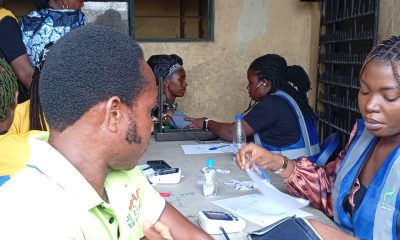Business
‘Nigeria Lost N556bn To Pipeline Vandalism, Others In Three Months’
Between August and October this year, Nigeria lost crude oil valued at about N556 billion due to pipeline vandalism, community interferences, sabotage of oil facilities, among others.
This was contained in the latest industry data obtained from the Nigerian National Petroleum Company Limited (NNPC).
The data which was compiled from the Crude Oil Marketing Division report of events that affected oil production in August, September and October 2021 indicated that the country consistently posted losses during the period under review.
According to the data, in August, September and October 2021, the average costs of a barrel of Brent, the crude against which Nigeria’s oil is priced, were $70.75, $74.49 and $83.54 respectively.
Crude oil volumes lost due to various production shut-ins, caused by vandalism, sabotage and other challenges in August, September and October were 6,680,620 barrels; 6,362,700 barrels; and 4,824,946 barrels respectively.
At the official exchange rate of N411.95 to the dollar, the worth of the crude volumes lost by the country in August, September and October were N194.71bn, N195.246bn and N166.05bn respectively.
This implies that the value of crude oil that was lost by Nigeria during the three-month period was about N556bn.
This came at a time when the country’s debts were increasing, with the Federal Government sourcing for funds by borrowing several billions of dollars.
Further analysis of the reports from the NNPC showed that 20 incidents led to the loss of 6,680,620 barrels of crude oil recorded in August this year due to various production shut-ins.
It was also observed that eight crude oil terminals were affected in August, as production was curtailed at the facilities during the period.
The affected terminals in the reviewed month include Forcados, Sea Eagle, Brass, Yoho, Qua Iboe, Escravos, Ajapa and Otakikpo.
Explaining some of the incidents that curtailed production in one of the terminals, for instance, the NNPC said, “Energia (an oil firm) injection into Brass line (was) suspended due to pipeline damage.
“Pillar injection into Brass (was) suspended due to third party interferences on NAOC (Nigeria Agrip Oil Company) Akiri pipeline.”
For the month of September, it was observed that 18 incidents warranted the loss of 6,362,700 barrels crude oil, following production shut-ins recorded in the reviewed month.
A total of nine terminals were affected in September, including Forcados, Sea Eagle, Brass, Yoho, Qua Iboe, Escravos, Urha, Ajapa and Otakikpo.
On some of the incidents that led to the crude oil losses in September, the NNPC stated that “production (was) curtailed due to pipeline outages” at the Forcados Terminal.
It also noted that Energia injection into Brass line (was) suspended from September 1 to 30, 2021 due to pipeline damage.
The incidents that led to crude oil production shut-ins, however, reduced to 11 during the month, according to the report.
But eight terminals were affected as the total loss recorded in October was 4,824,946 barrels of crude oil, which was the lowest among the figures posted during the three-month period.
The affected eight terminals include Forcados, Bonny, Odudu, Brass, Yoho, Urha, Ajapa and Aje.
Business
PETAN, Others Unveil ALCO, Get NCDMB’s Support … Mull Synergy With APPO, AU

Business
AON Lifts Ban On Freed Ibom Air Passenger

Business
Ex-NIMASA DG Harps On Blue Economy Importance

-

 Business2 days ago
Business2 days agoPETAN, Others Unveil ALCO, Get NCDMB’s Support … Mull Synergy With APPO, AU
-

 News2 days ago
News2 days agoNigeria’s Debt To W’Bank IDA Hits $19.2bn -Report
-

 Sports2 days ago
Sports2 days agoD’Tigers flawless finish against Lions in AfroBasket
-

 Sports2 days ago
Sports2 days agoNigeria delegation Visits London over 2030 Commonwealth bid
-

 Sports2 days ago
Sports2 days agoNYG:154 Nasarawa Contingent Storms Kwara For Zonal Eliminations
-

 Niger Delta2 days ago
Niger Delta2 days agoSSI Moves To Empower Residents Of N’Delta Communities
-

 News2 days ago
News2 days agoChurch Renders Free Medical Outreach, Others To Host Communities
-

 Business2 days ago
Business2 days agoAON Lifts Ban On Freed Ibom Air Passenger

